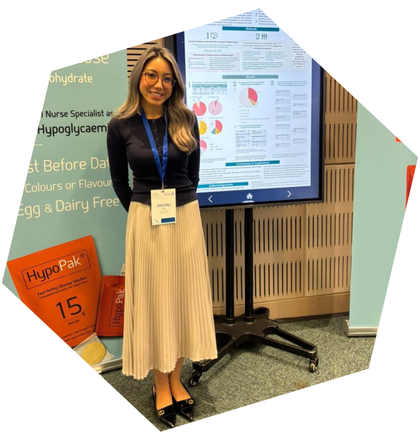Case Study
Research Review: Improving Access to Remission Services for Young Adults
Diabetes New Zealand Research Foundation Summer Studentships 2024-5: Improving Access to Remission Services for Young Adults Crystal Tan
As a fourth-year medical student, I had the honour of spending my summer working alongside Professor Rinki Murphy and Dr James Shand on a research project that explored how routine health data can be used to identify young adults with type 2 diabetes (T2D) who may benefit from remission-focused care. Our work was based in Counties Manukau, a region with one of the highest rates of diabetes in Aotearoa New Zealand, particularly among Māori and Pacific youth.
We collaborated with the Health Intelligence and Informatics (HII) team and the Te Mana Ki Tua (TMKT) service—a specialist weight management programme designed to help people with T2D achieve remission through intensive dietary support. Our goal was to assess how accurately routine clinical data could identify individuals with T2D and determine how many young adults were eligible and interested in joining the TMKT remission programme.
Out of 841 young adults aged 15–28 with clinically coded T2D, we found that 34% (285 individuals) met the eligibility criteria for the TMKT service. When we contacted a subset of these eligible participants, 45% (34 individuals) expressed interest in the programme, and 14% (11 individuals) went on to start the intervention. We also found that HII coding was highly accurate—95% for type 1 diabetes, 90% for type 2 diabetes, and 85% for gestational diabetes—suggesting that routine data can be a powerful tool for identifying people who could benefit from targeted care.
One of the most rewarding aspects of this project was seeing how research can directly inform and improve patient care. It was especially meaningful to explore ways to address inequities in diabetes treatment and access, and to contribute to a programme that offers real hope for young people living with T2D.
I’m incredibly grateful to NZSSD and DNZRF for supporting this research and for the opportunity to present my findings at the 2025 NZSSD Annual Scientific Meeting. I look forward to continuing to contribute to diabetes care in the future.


